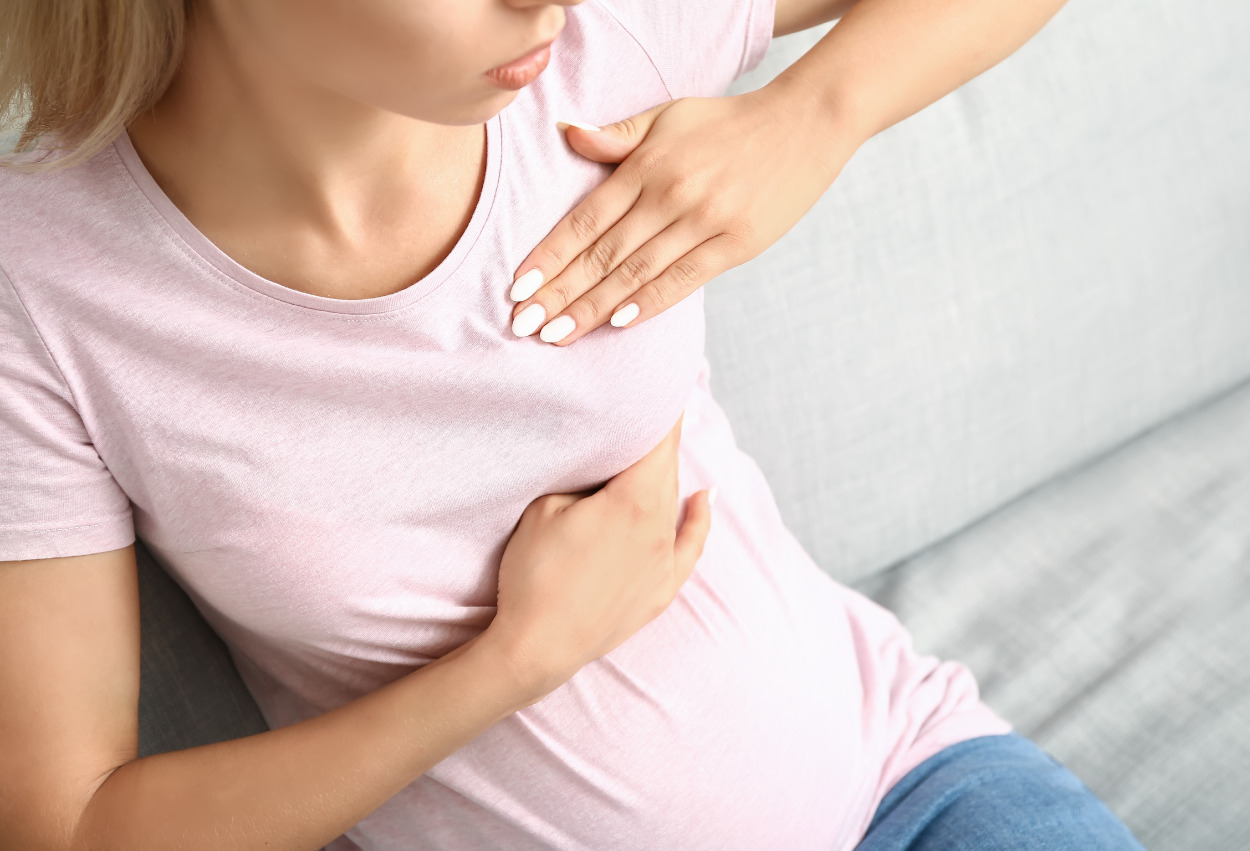Dr Ankita S
MBBS, MS, DNB OBGY
Hyperandrogenemia is a biological trait of PCOS. The severity of the illness frequently correlates with an increase in androgen concentrations, which indicates that 75–90% of PCOS patients have elevated levels of androgens. Hyperandrogenism might also be caused by congenital adrenal hyperplasia and Cushing’s disease. It is important to comprehend the relationship between PCOS and hyperandrogenism, and explore how they are linked.
What is Hyperandrogenism and its Symptoms?
“Hyperandrogenism” refers to the medical condition where women have excessive levels of androgens in their bodies. The typical indications of this condition include hirsutism, acne, and alopecia. Furthermore, the presence of excess androgens can also trigger other medical issues in various organs and tissues.
How does Androgen play an important role in PCOS?
Androgens play a vital role in the well-being of women by promoting bone density, muscle mass, and sexual function. In PCOS, excess androgen initially leads to poor follicle development. During the gonadotropin-independent stage, elevated androgen levels stimulate the growth of primordial follicles and increase the number of small antral follicles. It is believed that PCOS disrupts the neuroendocrine system, affecting the balance of the hypothalamic-pituitary-ovarian axis. This disruption results in the overproduction of gonadotropins, with LH being produced more than FSH due to excess hypothalamic GnRH. Consequently, an increased LH/FSH ratio becomes a common hormonal indication of PCOS.
Signs and Symptoms of Hyperandrogenism in PCOS:
The clinical indications of hyperandrogenism in females with PCOS consist of hirsutism, acne, and androgenic alopecia. Additionally, other symptoms such as weight gain, menstrual irregularities, acanthosis nigricans, and insulin resistance are also observed.
- Hirsutism – Hirsutism is characterized by the growth of terminal hair on the face and/or body in a male pattern. It is a significant feature of hyperandrogenism in PCOS. The prevalence of hirsutism in women with PCOS varies between 60 and 80%. There are individuals who remove this type of hair growth without recognizing that it could be an indicative sign of a medical ailment. It is crucial to inform your healthcare provider if you are encountering this symptom.
- Acne – Acne is the second most prevalent indicator of hyperandrogenism. The occurrence of acne differs based on ethnicity. Nonetheless, the presence of moderate to severe acne, particularly when coupled with other symptoms, might imply elevated levels of androgens.
- Alopecia – Androgenic alopecia, also known as male pattern baldness, is another manifestation of hyperandrogenism that occurs in women with PCOS. The occurrence of alopecia in PCOS appears to be widespread. Male-pattern balding happens when there is hair loss around the crown of the head or a receding hairline. This differs from female pattern balding, where the top of the head thins out while the hairline remains intact.
How to treat Hyperandrogenism PCOS Symptoms
As PCOS and hyperandrogenism may not always present with the same symptoms, the approach to treating hyperandrogenism may vary. Hormone therapy is a common treatment for hyperandrogenism. In addition, lifestyle changes such as modifying eating habits to achieve weight loss can also be beneficial for individuals with this condition.
Each form of treatment has a unique set of benefits and drawbacks, and drugs might have dangers and unwanted consequences. The best solution for your particular case should be discussed with your healthcare professional.
A Piece of Counsel
The uncomfortable symptoms of PCOS brought on by hyperandrogenism may have an adverse effect on a person’s well-being. If you are having any problems because of these symptoms, it’s crucial to let your doctor know. Although there is no recognized treatment for PCOS, there are a number of solutions that can help you feel better.
References
2. https://www.nature.com/articles/nrendo.2010.217
3. Ashraf, S., Nabi, M., Rasool, S.u.A. et al. Hyperandrogenism in polycystic ovarian syndrome and role of CYP gene variants: a review. Egypt J Med Hum Genet 20, 25 (2019).https://doi.org/10.1186/s43042-019-0031-4
4. Sarah A. Kanbour and Adrian S. Dobs. Hyperandrogenism in Women with Polycystic Ovarian Syndrome: Pathophysiology and Controversies.Androgens: Clinical Research and Therapeutics.Dec 2022.22-30.http://doi.org/10.1089/andro.2021.0020
Frequently Asked Questions
Hyperandrogenism in PCOS refers to the condition where women have elevated levels of male hormones (androgens), leading to symptoms like hirsutism, acne, and alopecia.
The symptoms of hyperandrogenism in PCOS include hirsutism (excessive hair growth), acne, and androgenic alopecia (male pattern baldness).
Hyperandrogenism in PCOS is diagnosed through blood tests to measure hormone levels, including androgens like testosterone.
Yes, hyperandrogenism in PCOS can be treated. Hormone therapy, topical creams, oral antibiotics, and lifestyle changes like weight loss can be effective treatment options.
If you experience symptoms like excessive hair growth, acne, or male pattern baldness, it's essential to consult a healthcare professional for proper evaluation and management.
Dr Ankita S
MBBS, MS, DNB OBGY
Varshini
M.Tech Food Biotechnologist
Varshini
M.Tech Food Biotechnologist
Related Blogs
- How to prevent Prediabetes from Turning into DiabetesSeptember 19, 2023
- Unravelling the connection: insulin Resistance and PCOSSeptember 8, 2023







